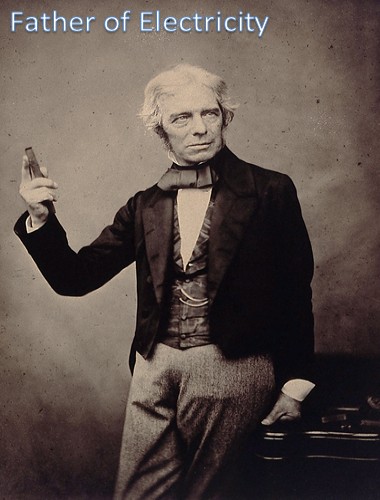Michael Faraday Life Story:
Michael Faraday was born on 22nd September 1791 into a poor family, in South London. His father was a blacksmith and his mother cared for the four children in the home. Despite this financial challenge, Faraday educated himself with the books found in the shop where he apprenticed as a bookbinder.
Michael Faraday changed the world in many ways, but most notably through his experiments with electricity. He discovered electromagnetic induction. He also invented the first electrical generator. He was also the first to create an electric motor and he proposed the laws of electrolysis. He even discovered several vital hydrocarbons used in industry today. Michael Faraday was a British scientist who is well-known for his contributions to the field of electromagnetism.
1. He discovered electromagnetic induction:
Before Faraday made it on the scene, scientists were aware of electricity, though they had done little to harness it for practical use. Take Giovanni Aldini, for example, who embarked on a tour around Europe in 1803 to electrocute a corpse in front of an audience. Electricity was such a mysterious force at the time, most laypeople saw it akin to magic more than anything else.
Faraday changed all that when he discovered electromagnetic induction in 1831. Through his innovative experiments, he found that by placing a conductor in a changing magnetic field, it would produce voltage across the conductor. In simpler terms? He found a way to cause an electric current, and that discovery was later applied to many devices we use today.
By age 40, Faraday invented the electric motor, transformer, and generator. Without the discovery of electromagnetic induction, we wouldn’t have wireless energy transfer or pickups for the electrical guitar, either. That’s right: you can thank the sweet, sweet sound of Jimi Hendrix in no small part to Faraday’s discoveries. In sum, Faraday turned electricity from solely amusement to practical and wide-ranging uses.
2. His inventions transformed the home, farm, and factory:
Forget about that fancy fridge that produces three different types of ice cubes on a whim. Before the advent of harness-able electricity, nearly every facet of human life functioned differently than it does now. People in Faraday’s time got by at home with oil lamps, wooden ice boxes, and coal stoves by dry sinks.
Faraday’s discoveries also came to revolutionize work for small-time farmers in just about every way imaginable. Electricity eliminated manual labor like pumping water, so that rural families no longer spent hours of their day hauling water to livestock or to the house. Automated systems for tasks like milking cows kept farmers from crippling their hands, and the threat of barn fires from knocked over oil lamps during early-morning milking decreased.
3. He devoted his life to teaching others:
Just as Faraday found wonderment through Davy’s lectures, he also had a desire to extend that reverence to children and future scientists. As he once said, “The lecturer should give the audience full reason to believe that all his powers have been exerted for their pleasure and instruction.” Faraday understood not only the importance of teaching, but of the enthusiasm and love behind it. Coming from someone who had next to no formal education, his commitment to education was nothing short of extraordinary.
Faraday started an annual lecture and demonstrations for children that have continued from 1865 until present day, and prominent scientists like Julian Huxley, David Attenborough, Carl Sagan, and Susan Greenfield continued to pass the torch. Throughout his lifetime, even while struggling with dementia and depression for decades, Faraday’s devotion continually pushed the boundaries of science — and the world has never been the same since.
